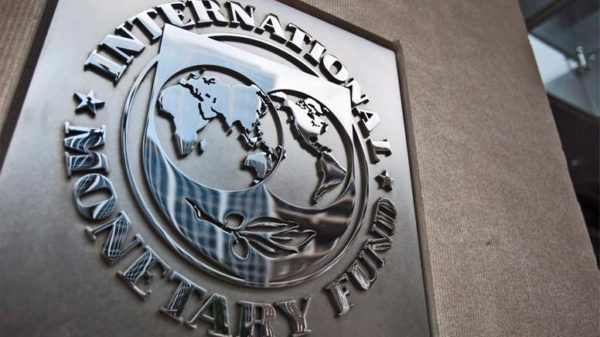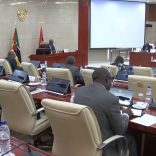Trade and industry in spotlight as Mozambique strengthens cooperation with China
Hidden debt: keeping the IMF in the dark

In file CoM
The defendants accused by US prosecutors of responsibility for Mozambique’s “hidden debt” scandal were careful to hide information from both the International Monetary Fund (IMF) and from the Mozambican Attorney-General’s Office.
The US indictment against former Finance Minister Manuel Chang, three former executives of Credit Suisse, Andrew Pearse, Surjan Singh and Detelina Subeva, and Jean Boustani, the lead salesman and negotiator for Privinvest, the Abu Dhabi based concern that was the sole contractor for the three fraudulent companies, Proindicus, Ematum (Mozambique Tuna Company) and MAM (Mozambique Asset Management), notes that Mozambique’s agreements with the IMF posed a problem for the conspirators’ schemes.
Chang was well aware that the IMF would not look kindly on enormous loans from Credit Suisse, guaranteed by the government, to companies that had only just been formed – particularly when these loans would be at or near market interest rates.
The indictment says that in December 2012 Chang wrote a letter to an unnamed Privinvet “co-conspirator” explaining that the financing of the supposed maritime security project to be run by Proindicus “is still constrained by the IMF-imposed limitation on the Government of Mozambique to accept commercial credit for commercial projects. Therefore, we have devised an alternative solution whereby an SPV (Special Purpose Vehicle) will be formed”.
Credit Suisse also had a rule that the IMF should be informed of the loan – but Pearse, Singh and Subeva, the indictment says, “replaced that condition with the less stringent requirement that Mozambique represent to investors ‘that they were in compliance with their World Bank and IMF obligations’”.
In other words, to further the corrupt scheme, the Mozambican government would simply lie to potential investors and to the IMF.
Chang signed the guarantee for the Proindicus loan in February 2013 – but it was successfully concealed from the IMF (and from the Mozambican public) for a further three years.
Only in April 2016, did the loans to Proindicus and to MAM (totalling around 1.1 billion dollars) become public knowledge. The IMF accused the government of hiding the country’s true macro-economic situation, and suspended its programme with Mozambique. Other partners followed suit – in particular, the 14 donors who provided direct support to the Mozambican state budget suspended their disbursements. Since direct budget support was running at about 400 million dollars a year, this contributed to a severe financial crisis. To this day direct budget support has not resumed.
Another condition imposed by Credit Suisse on the Proindicus loan was that the Mozambican Attorney-General’s Office should issue an opinion on the validity of the guarantee signed by Chang. That would have been fatal – anyone with a pocket calculator could work out that the guarantee blew a hole in the ceiling on loan guarantees established in the 2013 budget law.
Privinvest did not want the Attorney-General’s office involved and so Boustani sent an e-mail to Subeva claiming “The attorney general opinion is not mandatory… I believe that this will not be accepted by Proindicus since its owner wanted to bypass public tender and normal bureaucratic procedures from day one by creating a private entity!! So they will never accept to inform the Attorney-General !! The guarantee is legally covered by a presidential decree”.
The owner of Proindicus is in fact the Mozambican state (via concerns owned by the intelligence service, SISE, and the Defence Ministry). So Boustani was conspiring with parts of the state to keep an enormous loan hidden from other parts of the state. As for the presidential decree, if it exists, it has never been made public.
Credit Suisse had internal controls, which the conspirators circumvented “to enrich themselves and win the Proindicus business, including through the payment of bribes to Mozambican officials”.
There were warning signs about the Proindicus deal at an early stage. The bank asked Boustani if Privinvest had become the contractor for Proindicus through a competitive bidding process. Boustani replied that there had been no tender and the deal had resulted from “high level connections” between Privinvest and the Mozambican government.
Credit Suisse staff, in March 2012, identified allegations of corruption against the unnamed person mentioned in the indictment as “Privinvest Co-conspirator 2”. Singh and others at the bank were informed that Credit Suisse had once designated this person as “an undesirable client”.
Despite such “red flags”, says the indictment, Pearse, Singh and Subeva “withheld information about the likelihood of corruption connected to the Proindicus transaction” from the Credit Suisse compliance department.
They also withheld information that “Privinvest and Proindicus sought to appoint an individual in Mozambique, who had previously been involved in fraudulent conduct, to the Proindicus Board of Directors”.
The compliance department itself was far from blameless since it did not follow up the suspicions of other staff members.
Throughout 2013 and 2014, according to the indictment, Privinvest used the loan proceeds to make “numerous kickback payments” to Pearse. He opened an account in a bank in the United Arab Emirates which received 45 million dollars. These transfers were in dollars, and went through the UAE bank’s corresponding bank accounts in New York. This abuse of the American financial system is one of the reasons that US prosecutors have taken such an interest in the case.
Encouraged by the success of the Proindicus scam, Pearse, Subeva, Boustani and others embarked on an even larger venture, persuading Mozambique to borrow a further 850 million dollars, supposedly for the tuna fishing fleet of Ematum.
Much of this money was not really intended for Ematus at all. The indictment says “a significant part of the additional funds would be funnelled to Privinvest and then misappropriated, at least in part, to make additional bribe and kickback payments, pay inflated profits and make loan payments on the Proindicus loan to prevent discovery of the co-conspirators’ fraudulent scheme”.
Clearly Credit Suisse was now getting suspicious. It put Subeva on leave in July 2013 and sacked her the following month. By then Pearse had announced he was leaving the bank.
Despite this, and contrary to Credit Suisse policy, Pearse and Subeva, says the indictment, “used their personal e-mail accounts to conspire with Mozambican government officials and Privinvest employees” to ensure that the Credit Suisse loan to Ematum went through.












Leave a Reply
Be the First to Comment!
You must be logged in to post a comment.
You must be logged in to post a comment.